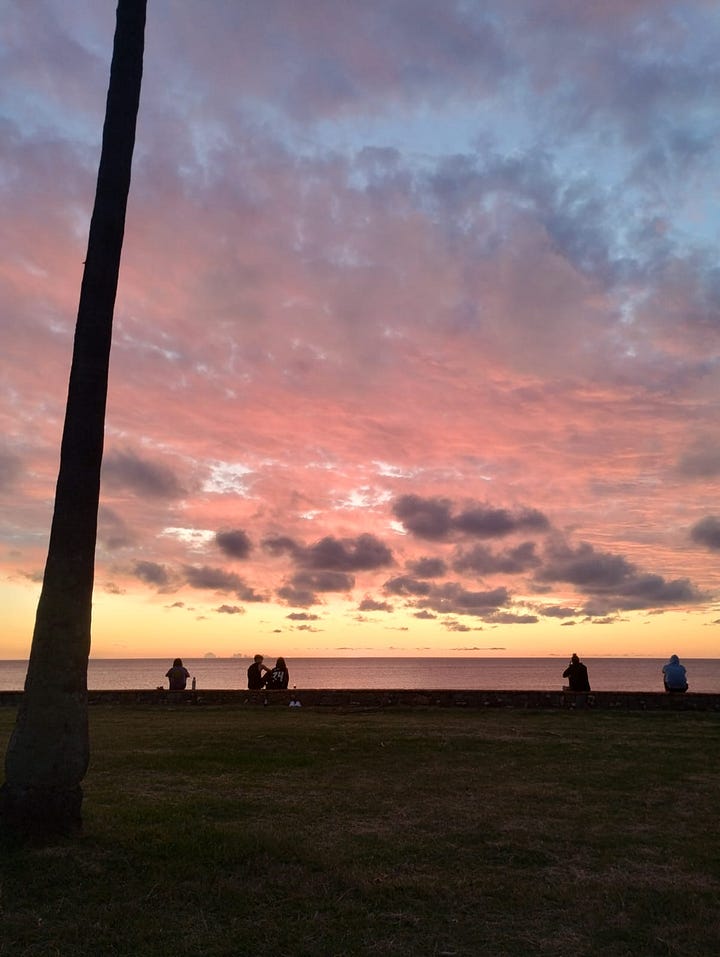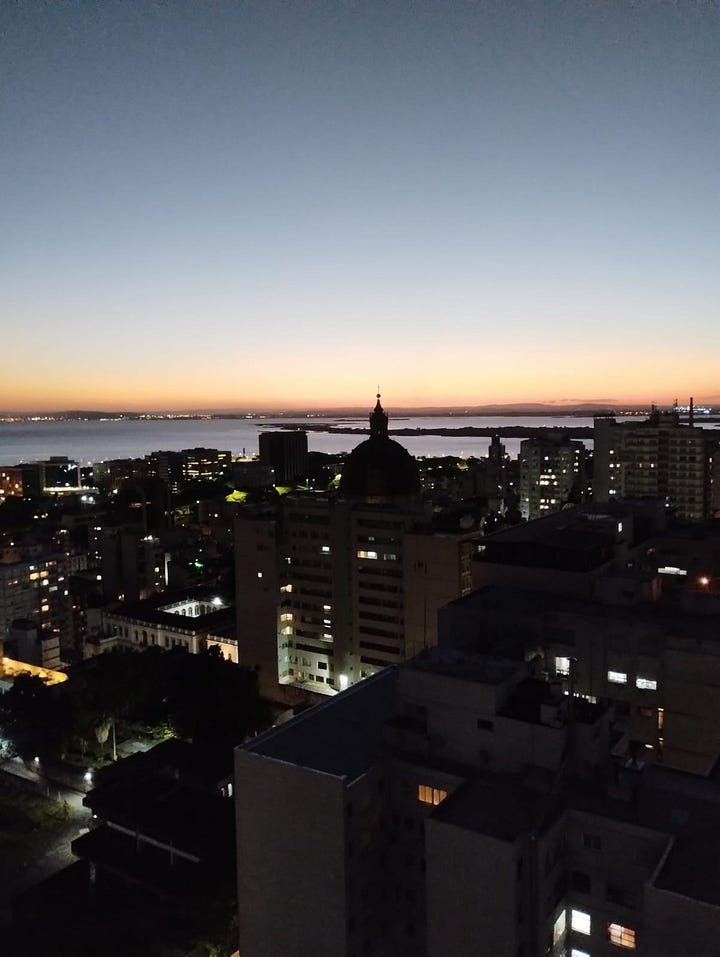Either you're detached or you're not a nomad
Objects stay behind while life moves forward
After over a year as a nomad, the comment I often hear, especially from those who know me now, is: "You're such a detached person." And indeed, either you're detached or you're not a nomad.


I've been trying to interpret the meaning of this. Like everything in life, I think part of the answer comes from childhood. I moved three times before I was ten. The first, at seven, was the most traumatic. It was the house I was born in, where I was beginning to understand myself, where I played. I still dream about it, with painful nostalgia.
Then I lived for ten months in a house that wasn't precisely haunted, but we didn't have good experiences. After that, my father, mother, sister, and I moved into my grandmother's house. My room was an adapted office. It was chaotic, although only for ten months. Until finally moving into the house my parents still live in today.
After eight years of stability, I moved from Avaré to São Paulo for college. In five years, I lived in four different places. After graduating, I moved three more times until I finally became a nomad at the end of 2022. That's 11 houses in 32 years of life. In a way, I've always been a nomad.
One of the changes during college illustrates detachment well. The sofa wouldn't fit in the new apartment. I sold it to my friend, who stayed in the old apartment. It wasn't just any sofa. It was the best sofa I've ever had in my life. I truly loved sitting on that sofa. My parents lamented so much about leaving the couch behind that they still talk about it today. But there was nothing to be done except to sell it. That's when I realized that objects stay behind while life moves forward.
Nomadism takes detachment to an extreme, thus people's surprise at seeing a human without a home for over a year. It doesn't mean it's without any suffering. Deciding what to do with your last belongings is a difficult choice. The options were leaving them with my ex-girlfriend, throwing them away, or taking them to my parents' house. I tried to take as little as possible to my parent's house, but I tried to keep a bit of my past alive, although asleep in an old drawer.
And then I found myself completely free in the world, able to choose where and when to live, in an absurd degree of detachment. But life goes on, and new detachments need to be developed. For example, you like a city or an Airbnb so much that you don't want to leave. Or love with deadlines keep happening, and the heart and mind are entirely disturbed.
One day you think everything sucks, and the next day you consider yourself the happiest person in the universe, living intense, unprecedented, and plural experiences that only a nomad will know.
Your belongings are another aspect that requires a monumental level of detachment. I travel with a carry-on suitcase and a backpack: only the essential clothes and objects. Your life needs to fit in a suitcase. I have enough clothes to survive for 15 to 20 days, so I plan to wash them before that period.
To avoid getting tired of the clothes, I adopted some tactics. I choose my favorites and those in the best condition. And I adapt my suitcase according to the climate of the places I'm going. The rest of the clothes stay at my parents' house, and I change them whenever I return. That's the advantage of a home-based nomadism.
And you can't be detached from everything. Every two or three months, I plan to be in Avaré, my hometown, to see my five-year-old nephew grow up. I don't want to be an absent godfather. I feel like one, even though I try to see him periodically.
If I have dominated detachment, I am still learning to deal with nostalgia. I have always been an excessively nostalgic person. Nomadism offers multiple lives. If you're nostalgic all the time, you'll suffer. That's why a nomad needs to be as little nostalgic as possible. The brightside is that multiple nomadic lives are more brief, so it's easier to detach from nostalgia.
I'm currently spending two months in São Paulo, a city I lived in for 14 years. Since I'm going to be here for an extended period, I decided to do a big grocery. And I suddenly missed living in one place, doing the monthly market, and having a routine life. It passed quickly, but it shows that detachment isn't that easy, just like the complexity of our minds and desires.
But yes, I am a detached guy who has lived for over a year, staying from Airbnb to Airbnb in more than 15 cities. And I am willing to share these learnings with those who desire a similar life. If you like this newsletter, share it with friends or consider a paid subscription. Detachment has a price, emotional and financial.
Thank you very much for reading!



So true! Objects are just "material stuff", life often shows us (through loss, theft etc.) that we don't need them anyways....
After college I moved around a lot. Firstly to CA then I could pretty much write a roadmap of the state. (not really, but I moved a lot). One thing I do like about eventual moves is that a lot of 'spring cleaning' happens. I give stuff away when I move. I consider myself a minimalist but I'm sure a minimalist would dither with me on that. I have about 5 boxes of stuff I'll probably have forever, from childhood, my parents, etc. I haven't looked in it for a while, but there are photos in there that I may need for my posts, so it's about time for another look! I enjoyed your post!